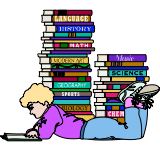Looking at Epic Poetry Through 21st-Century Eyes
“New translations of the ‘Aeneid,’ ‘Beowulf’ and other ancient stories challenge some of our modern-day ideas.”
Classical epic poetry has been the basis of the Western literary canon for centuries and has helped shape social values and political identities as well as literary history. But new translations of such epics as Vergil’s Aeneid, Beowulf, and Spenser’s The Faerie Queene aim to bolster “a sense of urgency about restoring nuance to the public’s understanding of the [epic] genre”:
As a series of political crises have, in the West, posed fresh challenges to the stories that have shaped our norms and principles, those who study epics see critical readings as an increasingly vital endeavor.
Why Stories Makes Sense of Our Lives (and Relationships)
“What is the essence of a person? When we profess to know someone, that is, really know someone—like a close friend, or a husband or wife—what is it that we know?”
In this excerpt from The Act of Living: What the Great Psychologists Can Teach Us About Finding Fulfillment, clinical psychologist Frank Tallis illustrates why “We have a natural inclination to think of ourselves—our past, present, and future—as an ongoing story.”
The Scariest Books
“Whether you’re scared most by graphic body horror, the uncategorisable, or the blurring of boundaries between supernatural menace and psychological unraveling, this list will have something for you.”
Xavier Aldana Reyes, editor of Horror: A Literary History, discusses five scary books. “With horror novels and films, you know you’re experiencing fear in a safe space that you ultimately control,” he writes.
Joan Frank ~ I Say It’s Spinach
Author Joan Frank explicates what she calls a tendency “to editorialize in the course of storytelling” that she began noticing in literary fiction a few years ago. She began noticing novels and stories that contain an agenda, “bearing a Message, with a capital M.”
While these agendas—on topics such as human rights, climate change, gender fluidity—may be well intentioned, she argues that they are not art. She argues that, although such causes are worthy and important, “They are not the story.” Furthermore, “I must insist that art that is art—at least in terms of literary fiction—wants nothing to do with lobbying or lobbyists.”
Also see propoganda novel.
An Elegy for the Landline in Literature
I am old enough to remember when a phone ringing in the middle of the night indicated that something very bad had happened. Of course, that ringing phone was a landline, the only kind of phone we had back in those days.
“Since its invention, in the nineteenth century, the landline has often been portrayed as sinister—the object through which fate comes to call,” writes Sophie Haigney. She discusses how the landline was used in literature “as an open line of possibility, just waiting to ring,” that has been eliminated by the ubiquitous cell phone.
How to read more books

“Modern life can feel too frantic for books. Use these habit-building strategies to carve out time for the joy of reading”
I avoid advice on how to read more books that advocates speed reading because I believe that reading requires more time for interacting with the text than speed reading allows. Reading better is more important than simply reading more.
But this article is aimed at people who in the past have loved their reading life but, because of the proliferation of forms of information delivery and entertainment, haven’t been able to give pleasure reading the attention they’d like.
© 2020 by Mary Daniels Brown


I read the Joan Frank article with particular interest. I’ve always objected to the propaganda novel (or poem or short story).